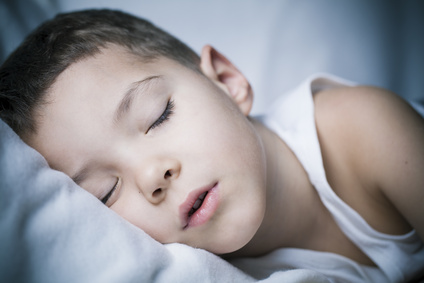30/07/2013

Bedwetting
Many children manage toilet training well but staying dry at night isn’t always so easy to master. 10-15% of children will still wet the bed at night at the age of 6 and most GPs won’t consider it to be a problem until the age of 7 plus. Boys in particular may find it difficult and they are three times more likely to wet the bed at night than girls the same age. In general, before the age of 7 bedwetting is only considered an issue if the child is feeling bad about themselves as a result of it, otherwise parents should try to stay relaxed.
What is involved in staying dry at night?
Between the ages of 2-6 the body starts to produce an antidiuretic hormone in the early evening which reduces urine production overnight. Different children develop this nightly hormone cycle at different ages. There are hereditary influences involved so it is likely that if a parent was still bedwetting at the age of 6 then their child will do so too. As children grow older they also become more skilled at learning to wake themselves when their bladder is full.
What you can do:
Paradoxically the most helpful thing you can do is to increase your child’s fluid intake during the day and make sure your child has a drink regularly. This helps the bladder practise being full and stretches the bladder so it gains a bigger capacity in order to hold onto liquid throughout the night.
However, it is still best to avoid all squash, fruit juices and fizzy drinks with evening meals and before bed. Avoid giving anything in the hour before bedtime but if the child insists on a bedtime drink then only offer water or milk.
Children may not fully empty their bladder in one go so going to the toilet twice before bedtime may be helpful (e.g. once before bath and once before bed).
For children who are resistant to going to the toilet twice in quick succession then lifting a child to go on the toilet / potty 3-4 hours after bedtime may be helpful. Keep lights low and talking to a minimum to ensure an easy transfer back to bed. Once children are successfully dry after lifting, experiment with gradually moving the lifting to progressively earlier in the evening before eventually phasing out.
Putting children to bed half an hour earlier than usual may help with overtiredness and avoid children falling into such a deep sleep that they cannot rouse themselves to go the toilet when needed.
It is important to praise dry nights and minimise commenting on wet ones. It is frustrating for parents when children cannot seem to master dry nights but punishment, criticism or belittling leads to higher anxiety in the child and increases the likelihood of a wet bed.
After a run of dry nights parents often think their child has ‘cracked it’ only to feel disappointed and frustrated when the frequent bedwetting returns. Unfortunately bladder control can be a work in progress for quite some time. It’s not unusual for children to have several dry nights in a row and then have a whole week of wet beds and for this cycle to continue repeatedly over a long period.
As bedwetting occurs when children are asleep, reward charts will only be useful once you feel certain that your child has some bladder control and therefore a chance of success. Otherwise they can set the child up to fail and leave everyone feeling dispirited.
If bedwetting is frequent and parents are becoming frustrated and annoyed about the constant laundry then it is better for the child to return to pull ups and take the pressure off everyone for a time. Waiting until the child is a little older and letting everyone get back to having unbroken sleep for a while may give the process more chance of success when you decide to try again.